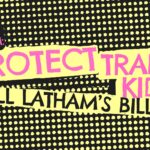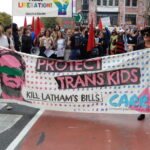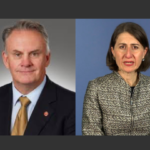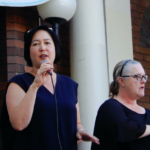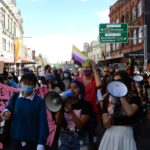Trans Is a Gift, Not a Threat: AusPATH’s Teddy Cook on Latham’s Anti-Trans Laws
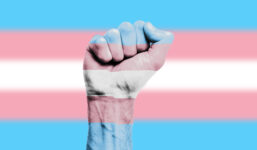
Currently, there’s a very dangerous bill under review of a NSW parliamentary committee that seeks to effectively erase the identity of trans kids within the education system, as it would ban all staff from mentioning gender fluidity at schools via threat of dismissal.
NSW One Nation leader Mark Latham introduced his Parental Rights Bill in August last year. And in doing so, he delivered a rather paranoid speech about leftist “social engineers” within the NSW Teachers Federation pushing the “ideology” of transgender as if it’s something that can be acquired.
One might think such extreme laws wouldn’t be tolerated by a parliament in such a diverse state as NSW. However, the Berejiklian government has already endorsed Latham’s proposed uranium mining laws, as well as a bill extending a right to discriminate to those of faith.
And there’s also those in the community who think damaging innocent children is the Lord’s bidding. Under pressure from Catholic Schools NSW, the Parramatta Catholic Diocese has reneged its initial opposition to the bill, citing “serious concerns, echoing Pope Francis, about this ideology”.
A voice of experience
AusPATH vice president Teddy Cook appeared before the 20 April inquiry hearing at NSW parliament. He spoke from a placed of lived experience, having once been a transgender child within the schooling system. And what he had to say was of such substance, his speech went viral.
Cook suggested that he might be the only trans person who appeared before the committee, adding that it’s often the case that people who are most affected are given the least opportunity to speak. And it turned out he was correct in assuming he’d be the only trans witness.
“One thing is for certain,” Cook said and that is “trans people deserve the dignity of being known”, as when transgender kids who attend schools where they’re affirmed do better in life. He also made clear that schools are already some of the most unsafe places for trans children.
And that’s why One Nation’s laws are so dangerous. Trans kids are already highly marginalised in the community. Yet, under Latham’s vision, if they approached a school counsellor for help regarding their identity, they’d be denied it. And in the worst case scenarios, this would lead to self-harm.
A rising movement
Latham and his ilk seem to be threatened by transgender people, despite their only making up about 2 percent of the community. And one of the reasons he seems to be pushing such laws now is that trans rights are increasingly on the agenda and receiving broader community support.
A sign of this rising visibility, Teddy points out, is the appearance of TransHub last year. The ACON hosted site is “a digital information and resource platform for all trans and gender diverse people in NSW” their “loved ones, allies and health providers”.
Sydney Criminal Lawyers spoke to AusPATH’s Teddy Cook about the impact Latham’s regressive laws would have upon children, his thoughts on why transgender people seem to threaten One Nation-types, as well as why people ought to get out on the street to oppose these laws at the 5 June rally.
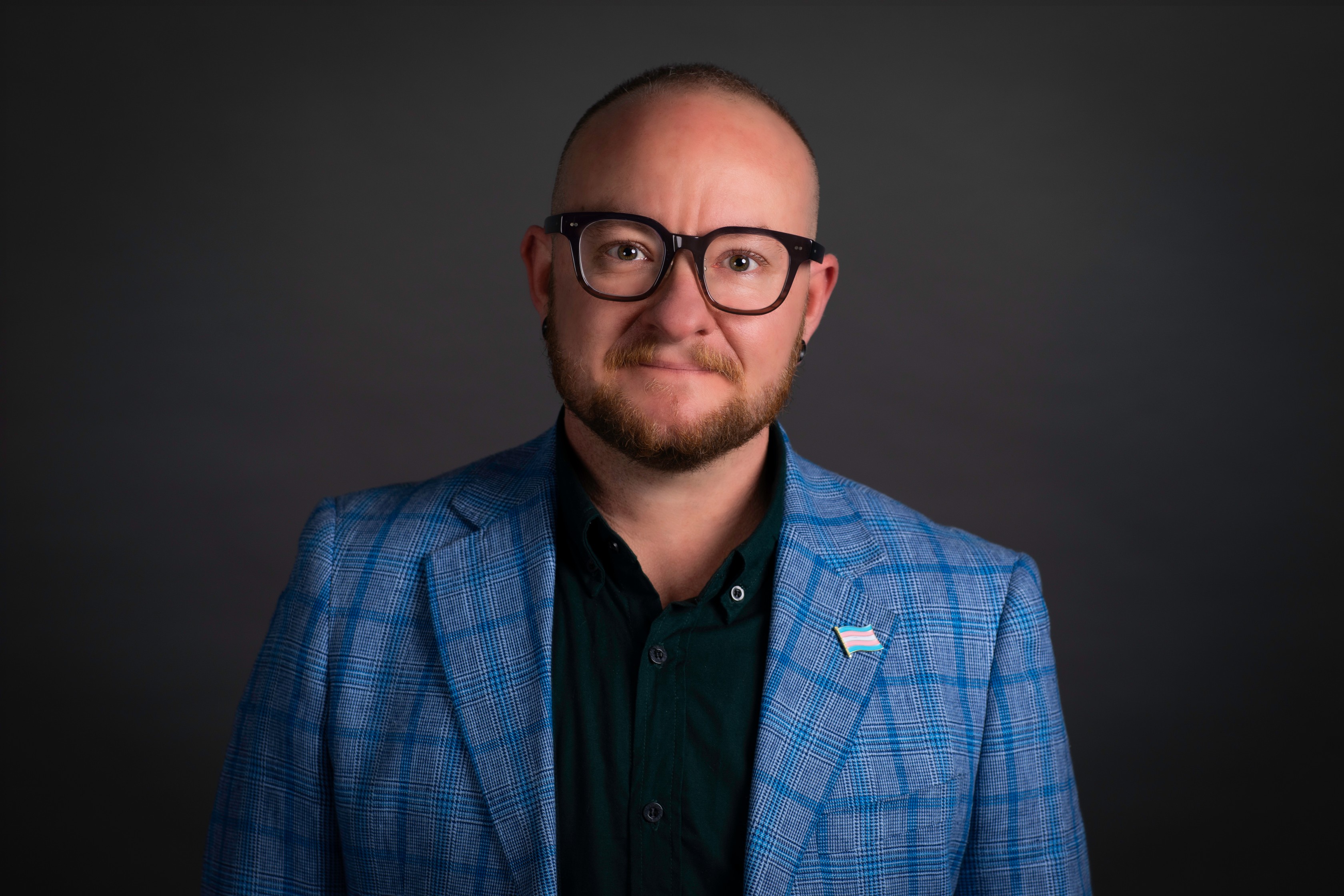
Firstly, on 20 April, you appeared at a review hearing into Mark Latham’s parental rights laws, where you made clear you were once a trans child within the schooling system.
Teddy, in your opinion, why are Latham’s proposed laws so problematic, and how would they impact trans youth?
What this bill is suggesting as a good course of action for this state is to essentially remove and ban any mention of the trans experience within the public school system. And what that means is to make people that already exist within the system invisible.
It’s easy to conceptualise something as an ideology when you haven’t actually met the person. Trans people aren’t an ideology. Trans isn’t an ideology. Trans is a person.
What this proposed law does is remove access to support, care and connection for people who are trans in schools, when being trans is just a very normal part of human diversity.
What this bill does is position people like me as certainly being a problem, but also that it would be better if we didn’t exist and that we should not exist.
What we also know is that trans young people shoulder a tremendous burden of harm and a tremendous burden of poor mental health outcomes, which are directly associated to how they are treated and how much access they have to be who they are.
So, conversely, when we look to the experiences of young trans people who are able to be who they are – and are affirmed as who they are to move through their lives – they not only do better in their lives, they do better in their schooling, they stay at school, they have more friends and they have a better quality of life to the detriment of nobody else.
You raise the point about ideology. Mark Latham has really been pushing the idea that somehow transgender is an ideology and that members of the NSW Teachers Federation are propagating it.
I’m yet to see evidence of that. It’s a falsehood.
What the NSW Department of Education is trying to do through its Legal Bulletin 55 is to offer guidance to teachers and staff on how to appropriately respond to the students they already have who are trans.
Mr Latham would position us as a concept. But actually, we are people. We are not a concept. We are not an idea. We are not anything other than human.
You also outlined that according to trans children in the education system, “schools are currently some of the most unsafe places for them to be”. But, as you further note, this doesn’t have to be the case.
How can the schooling environment be improved so trans youth don’t feel threatened but rather affirmed?
Data from Writing Themselves in 4 is a national LGBTQ young people temperature check on health and wellbeing. It was published earlier this year.
The message from the trans participants, of which there were many, was that what they needed was to be seen and what they needed was to be respected.
The number one priority for trans young people who completed the survey was to be treated well and to be treated as who they are.
It wasn’t to access medication or to have surgery or to go on hormones. It wasn’t to do anything other than be treated as the gender that they are.
When a trans young person reveals who they are, it’s a massive deal. What it speaks to is trust, and what it speaks to is courage.
We reveal who we are when we must, because a lot of the time when we reveal who we are we are met with derision and rejection.
Often, immediately after people reveal their gender, it is at that point that we see them feeling incredibly distressed, because they’ve taken the step to live authentically, and they’re being told they’re not allowed to.
The evidence suggests that when a trans young person – or any young person – reveals who they are, the best response is to believe them, respect them, and buy them a cake to say thank you for being who they are and sharing.
That means for trans children of all genders, whether they be binary or nonbinary.
The way that someone knows themselves to be somebody is with lived experience and it is their right to be affirmed, respected and treated with the dignity that they deserve.
Over the last half decade, the profile of transgender people has risen, and so too, have calls for the upholding of trans rights.
You raised the point in parliament that despite trans people making up a small percentage of the overall community, some of these politicians seem threatened by them.
In your opinion, why are politicians like Latham making these attacks now?
Gender is increasingly at the heart of the culture wars. And trans people – in particular, trans kids – are at the centre of it.
Part of that is because we offer a truth that challenges what most people have accepted to be fact.
We offer a truth that challenges notions that are for some people a core pillar of humanity, that is, they can trust that somebody who looks a particular way will identify in that same way, or when a baby is born, who they are is defined at that point or before that point.
We exist. We’ve always existed. And I see trans people – as do many and increasingly so – as an important gift.
But some people aren’t ready to understand that the human experience is, in fact, extremely diverse.
There are many billions of people on this planet, so the idea that there would be only two types of categories is limiting.
Surely, in 2021, you can think more expansively about humanity with recognition that diversity is really important.
We are seen as a threat. There is no doubt about it. We are seen as a discombobulation of reality, when what we actually do is offer a truth that has always been there.
That truth has been hidden by white supremacy, as it suggests that there is one particular type of body, and not any other type of body, but humans are much more diverse than that – much more diverse in so many ways.
As mentioned, there has been positive movement over recent years in terms of raising awareness around the rights of transgender people.
Can you speak about what’s been happening?
Over 2020, people were forced to confront themselves. And because of that, I’ve seen a huge increase in people who are feeling comfortable and confident enough to reveal who they’ve always known themselves to be but perhaps didn’t have the language to express.
In 2020, TransHub was born as well. It’s a website launched by ACON. TransHub is a world leading, award winning and life-saving platform. With its advent, people have had access to legitimate, evidence-based, trans-developed community resources.
This has meant – for the first time for many – that people have been able to find information about themselves that isn’t pathologising, isn’t medicalised and isn’t binary only.
So, that’s been really important and incredibly beautiful to see. One thing that the trans movement is really grappling with at the moment is who we understand ourselves to be.
Historically, trans people have been seen as binary only, so trans men and trans women only, and medicalised, that is, that in order to be trans you need to be doing hormones and surgery.
But we’re now starting to see in the community that the trans experience really should be defined as incredibly broad for people whose gender is different to what was presumed for them at birth.
A strong recognition of being trans has got nothing to do with what people look like and everything to do with who people are.
So, we are now seeing in our trans movement – which is so important and really the thing that will propel us towards liberation – is that trans must include nonbinary, and nonbinary must be trans.
That is something that I have been increasingly seeing. I feel really proud to see that because as soon as the trans experience is positioned to do with what someone looks like, then we see more and more harm being perpetrated upon the trans community.
This is particularly so for those who are living trans, that is, living visibly trans, where society does not see them as being cis.
If trans liberation and trans experience are only available to people that look like me, then we are leaving many people behind.
You’re the vice president of the Australian Professional Association for Trans Health (AusPATH). What does your organisation do? And why is it important to have an organisation specifically focusing on trans health?
AusPATH has been around for about 10 years. And we’re established to represent and to support health workers, and in particular the medical workforce, in providing affirming care to trans people of all ages.
We represent the workforce that engages with, works for and alongside the trans community in Australia.
It’s important for AusPATH to exist and to be focused only on the workforce engaged in either gender affirming health or trans health more broadly.
The reason for this is one element of the trans experience for many is that we are healthy people engaging in the medical system in order to get access to the life-saving care and treatment that we need. That is for those people that engage in medical affirmation.
The history of trans health globally has really been one where our healthcare has been done to us, rather than with us, and we have been seen through a mental illness lens.
TransHub has a really interesting page about diagnoses. Up until last year, being trans was seen as a mental illness. It was seen as a pathology or a disorder.
That idea has now been strongly rejected by all major medical and health bodies, and the literature, that is, the DSM-5 and the International Classification of Diseases version 11.
At the moment, we are in an environment where the health and wellbeing needs, as well as the medical needs, of trans people aren’t necessarily addressed through an LGBTQ focus.
Part of the challenge is about ensuring all health workers – whether they’re clinicians, GPs or psychologists or nurses – need to be represented by a group of professionals that understand their needs, and AusPATH does that.
We have about 300 members and we’re growing all the time. We offer education. We have a biannual conference. And we offer a whole lot of peer support.
In talking about the change that’s occurring in the health sector, you’re talking about a move away from trying to correct trans people’s health to simply trying to improve it.
Yes. There is nothing wrong with trans people. There is nothing wrong with us at all. People adjust and do things to their bodies all the time.
Certainly, people get lap band surgery or tattoos at far greater rates than those who access gender affirming healthcare.
There is this obsession with ideas like trying to catch trans people out on a lie or that we’re being deceitful or that we don’t truly know ourselves or that doctors know us better or they’re better placed to tell us what we need.
What we are seeing now increasingly from a health and medical perspective is there is a strong realisation that not only is the trans experience very normal but trans people are the experts of the trans experience. We are the experts of our own needs.
We don’t need to be assessed. We need to be supported. And that’s in line with patient-centred care, particularly because the vast majority of trans people report incredibly hostile experiences accessing health care.
I’ve known trans people who have experienced physical violence when going to the doctor or showing up to the hospital.
We are talking about a population with growing visibility and limited material benefit to our lives.
It is all well and good for people to wear a trans pride flag, but trans people shoulder the heaviest burden of suicidality in this country. If you are a sistergirl you are the most vulnerable person on the planet.
At the same time that people want to talk about pronouns and bathrooms, people are dying, and people are experiencing sexual violence at rates that should be the front page of the paper.
But instead, people want to talk about young people affirming who they are, expressing who they are and being respected to do so, rather than the actual issues that trans people face:
Incredibly limited access to healthcare. We have to be coercively made sterile to update our legal documents. We face immense violence in relationships, on the street and in prison. We are highly criminalised.
This is a most vulnerable population at the centre of the culture wars, and being thrown under the bus every other day, while we are truly just trying to get on with our day.
The second that our society realises that trans people are a gift the better.
And lastly, Teddy, Community Action for Rainbow Rights (CARR) has asked you to speak at its upcoming protest against Latham’s laws.
Why is it important to get out to this rally? And what are you expecting to happen from here in terms of the bill?
I’m not much up for a protest. I’ve never spoken at one. Not because I’m against them, but I’m a bit more of a behind the scenes policy dude, than being on the stage like that.
But this bill is one of the worst bills that this state has ever seen. It is the most hostile LGBTQ bill that NSW has ever seen – certainly, in recent years.
We are going back to a time that’s very similar to Margaret Thatcher’s Section 28, which banned the discussion of gay in all UK schools at a time when the HIV epidemic was about to explode.
We saw what happened with that in the UK, with people having no idea what was going on and no access to information or care.
This bill is wanting to replicate that. So, if I can face Mark Latham and the others on the committee, which was a very scary thing to do, and as this bill is so bad, I feel propelled to take to the streets.
And when someone like me feels propelled to take to the streets, then you know it’s really bad.
I’m hoping that lots of people turn out. But what I am really wanting, ultimately, is that people go home to their families and friends and to their Uber drivers and work colleagues and talk about how trans people are important to our society and they shouldn’t be erased. That is what I really want.
In terms of what’s happening next with this bill, I wait to see what’s in the report. But I don’t think it will be very good.


